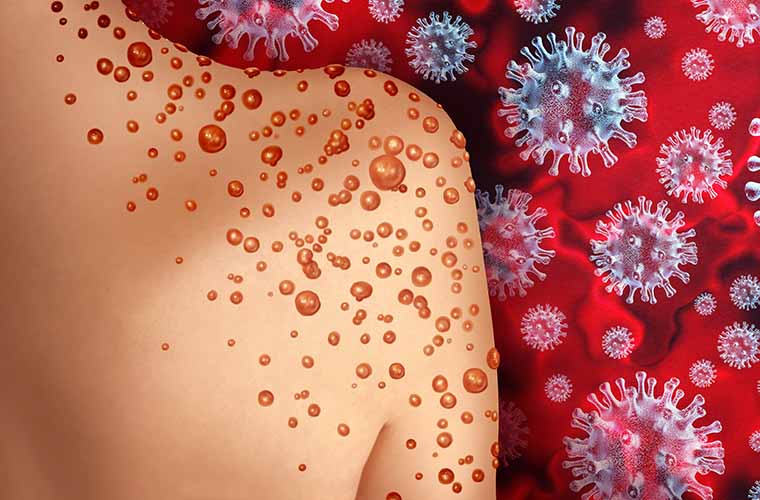What You Need to Know About Monkeypox

Monkeypox, a rare disease that was first discovered in 1958, is quickly spreading in the United States and in the Tampa Bay area.
Monkeypox typically occurs in central and west African countries. Early this year, the virus began to spread outside of that region and cases were recently identified in Europe, U.S. and Australia.
As the virus continues to spread across our community, here is what you should know about monkeypox prevention, signs, symptoms and treatment.
What is Monkeypox
Monkeypox is a rare disease caused by infection with the monkeypox virus, according to the Centers for Disease Control and Prevention (CDC). The monkeypox virus is part of the same family of viruses as variola virus which causes smallpox. It is not part of the family of viruses that cause chickenpox.
Symptoms
Monkeypox symptoms are similar to smallpox, but a bit milder. Symptoms include fever, headache, muscle and back ache, swollen lymph nodes, chills and exhaustion. Monkeypox symptoms also include a rash that can look like pimples or blisters appearing in some areas of the body including face, inside the mouth, hands, feet, chest, genitals and anus, according to CDC.
Monkeypox typically lasts two to four weeks and is rarely fatal.
Treatment
Currently, there are no treatments specifically designed for monkeypox virus. However, antiviral drugs and smallpox vaccines could be used to treat and prevent monkeypox virus infections.
If you think you’re experiencing symptoms of monkeypox, isolate at home and stay in a different room away from your family members or pets. You should also talk to your healthcare provider right away about getting tested.
Prevention
There are a few things you can do to prevent from getting infected with monkeypox. You should avoid skin-to-skin contact, as well as kissing and sharing utensils and cups with people who may have symptoms of monkeypox. You also should avoid handling bedding, sheets and towels of someone with monkeypox. In addition, thoroughly wash your hands with soap and water or use hand sanitizer.
Vaccination
CDC recommends getting vaccinated if you have been exposed to monkeypox and are at higher risk of being exposed to monkeypox. The vaccine used for smallpox may also help to prevent monkeypox virus infections. To learn more, visit CDC.gov.
